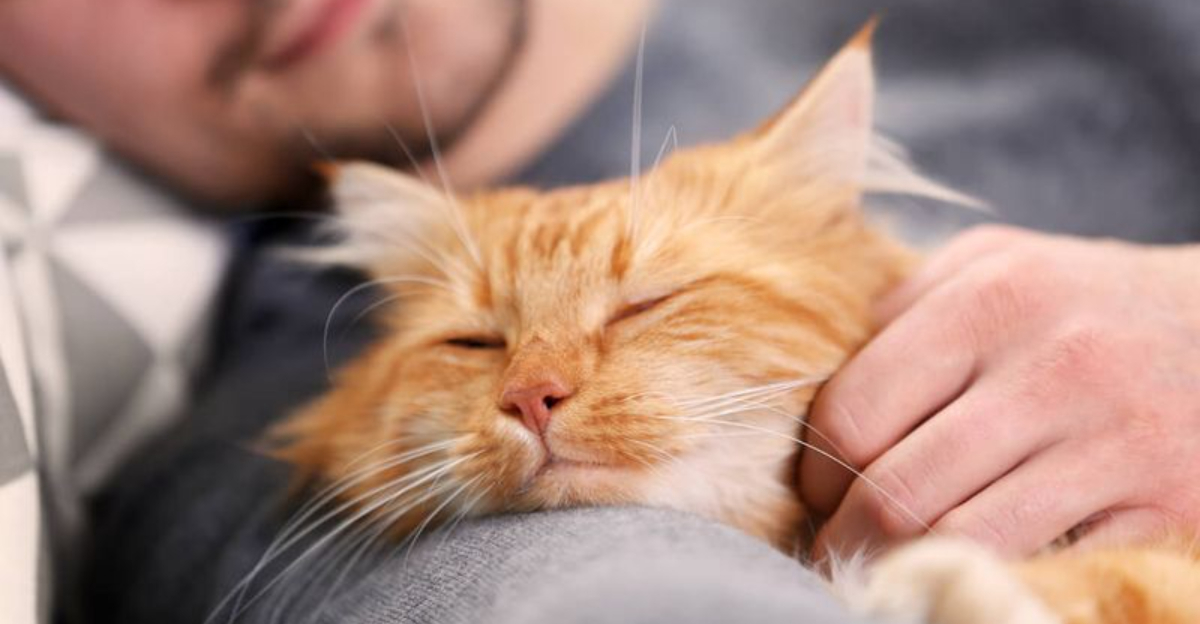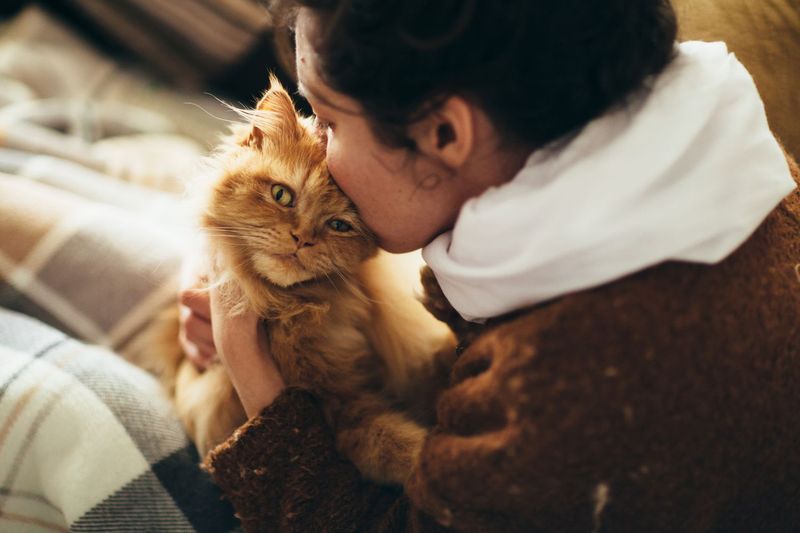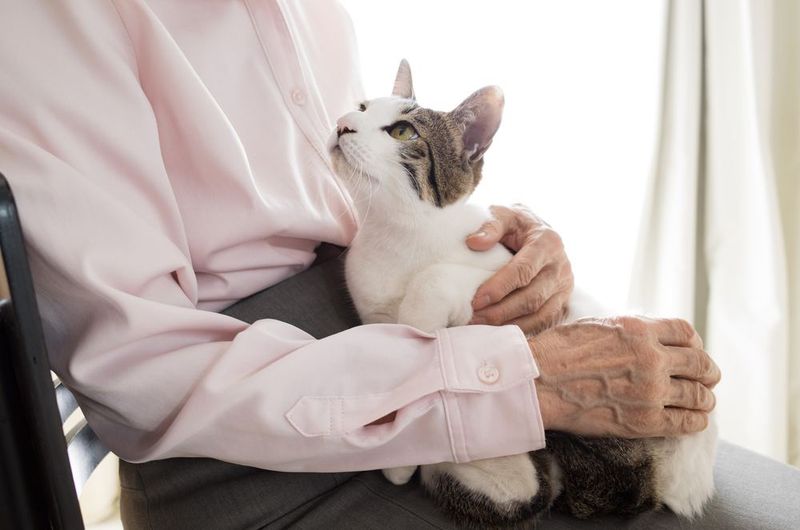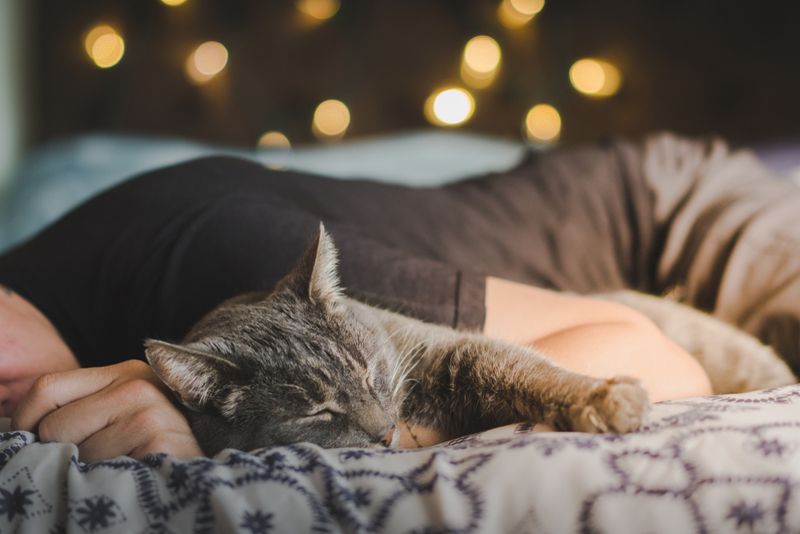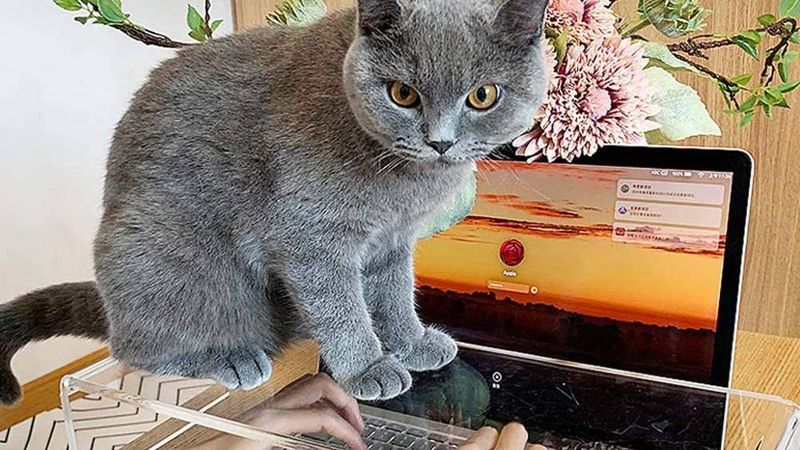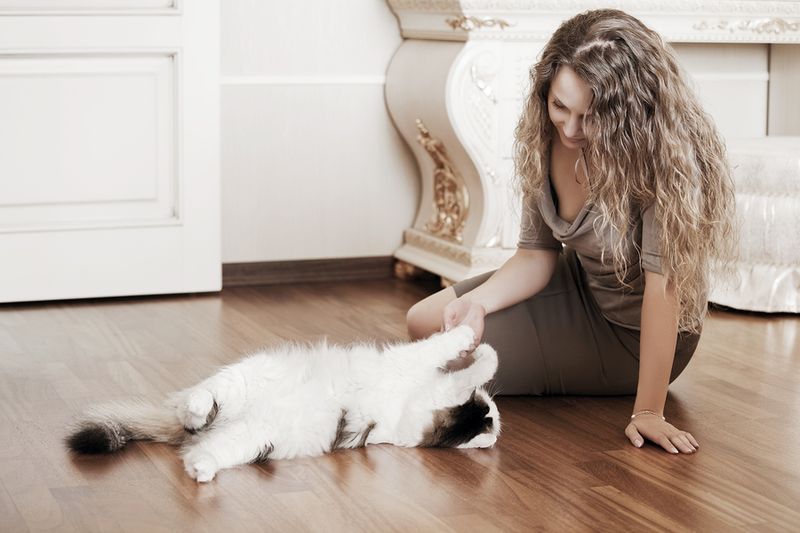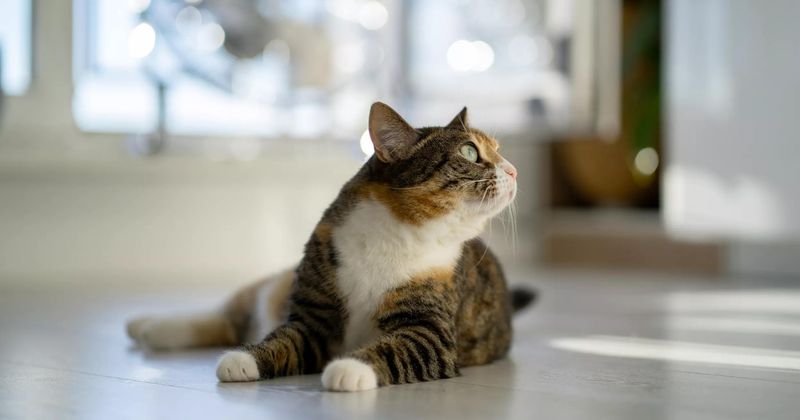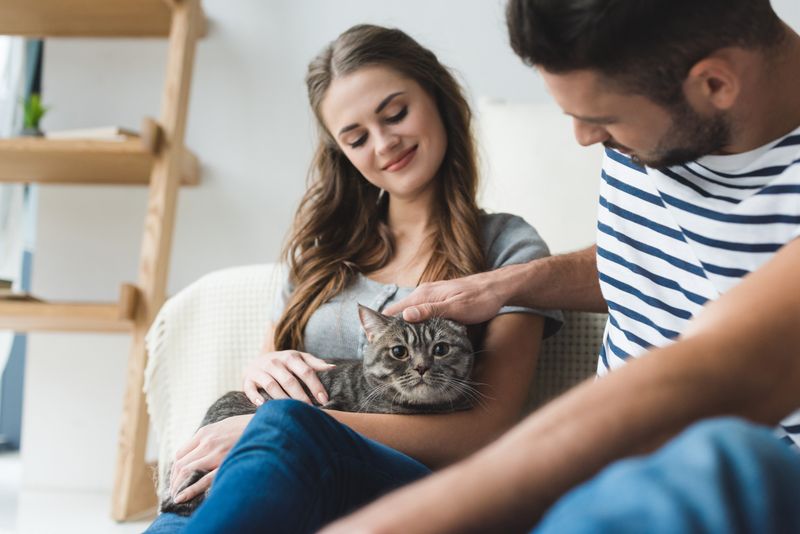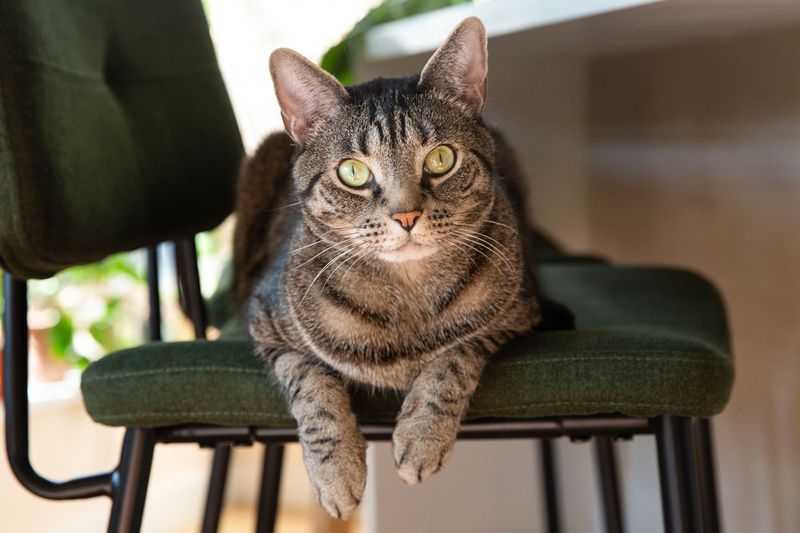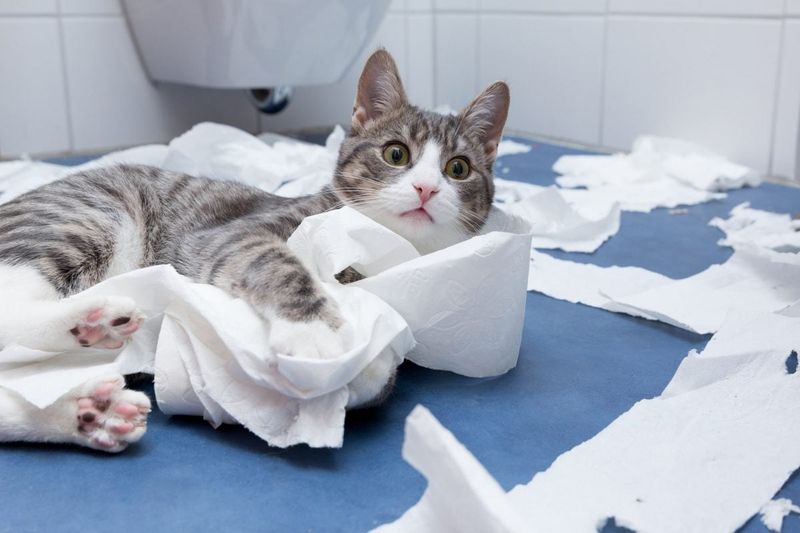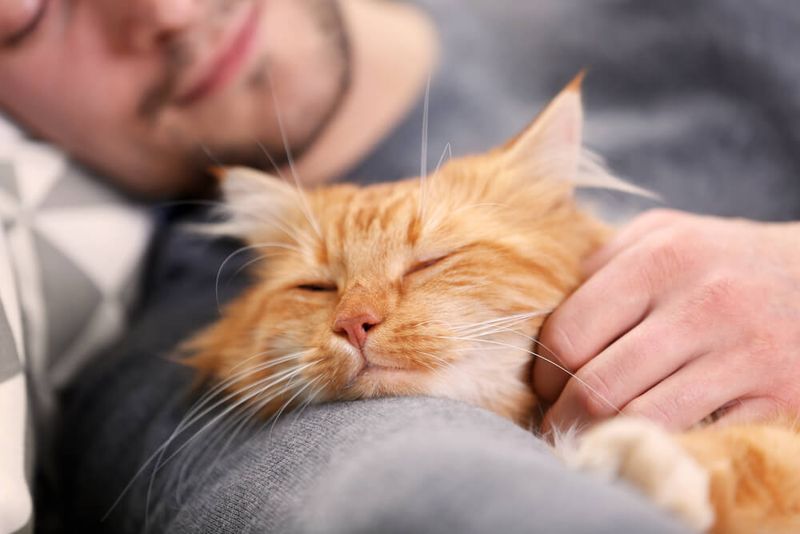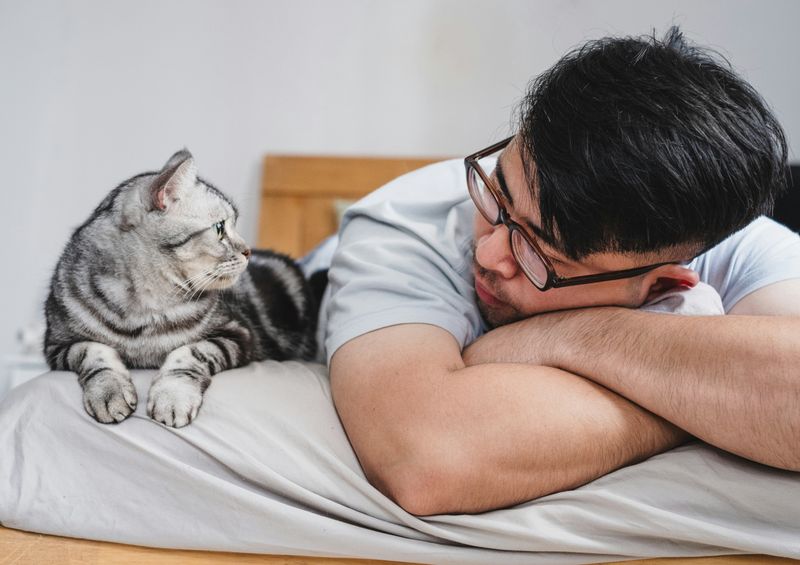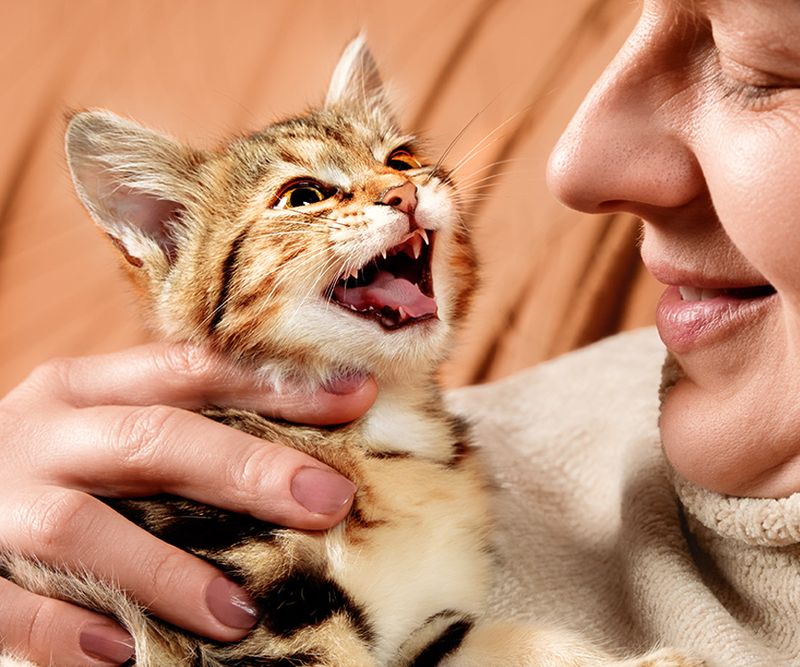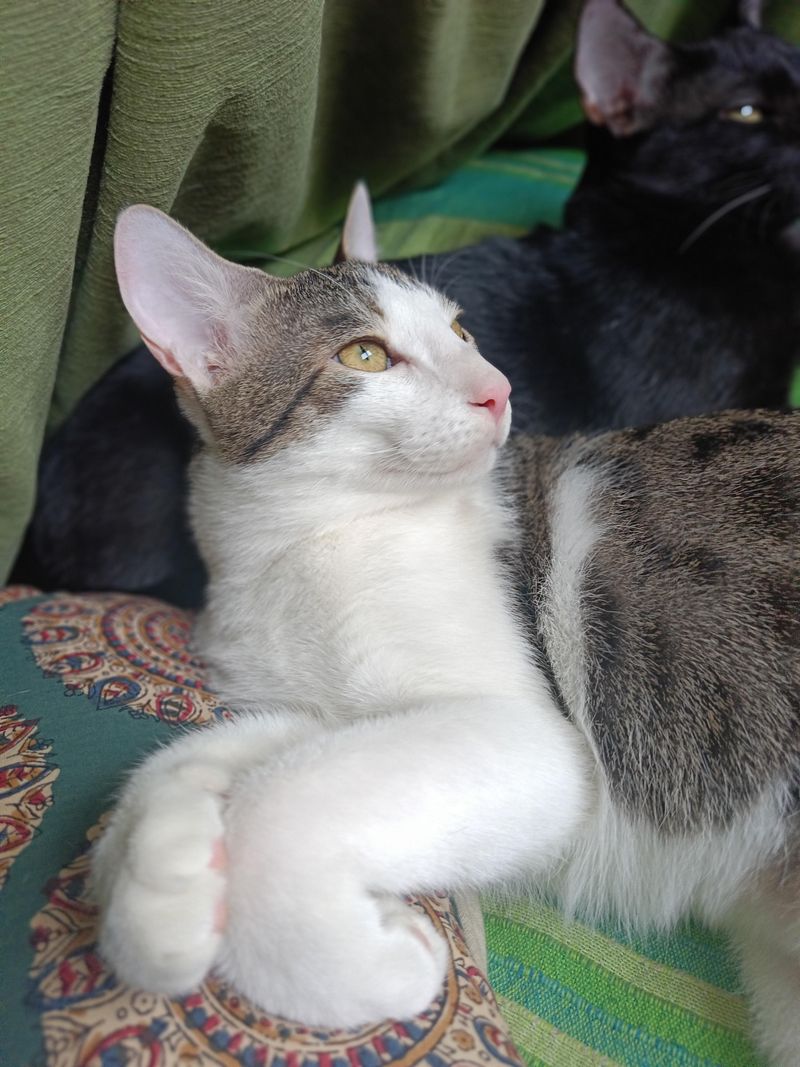📖 Table of Content:
- 1. Your Emotional State
- 2. Your Daily Routine
- 3. When You’re Getting Sick
- 4. Your Sleep Patterns
- 5. Your Food Preferences
- 6. Your Attention Span
- 7. Your Stress Triggers
- 8. Your Voice Patterns
- 9. Your Relationship Status
- 10. Your Personal Territory
- 11. Your Bathroom Habits
- 12. Your Manipulation Threshold
- 13. Your Mood Through Body Language
- 14. Your Response to Their Vocalizations
- 15. Your Fear Responses
Cats have shared their lives with humans for thousands of years, yet much about them remains enigmatic. Behind every slow blink and quiet stare lies a mind that’s always observing. While they appear aloof, their awareness is anything but casual.
Felines are skilled at noticing patterns, from daily routines to subtle changes in mood or behavior. Their sharp instincts allow them to detect things that often go unnoticed by others. This quiet observation helps them feel secure—and gives them insight into the people around them.
What may seem like simple curiosity is often something deeper. Many cats form silent assessments based on emotions, energy, and habits. Some of their conclusions about their humans might be more accurate than expected.
1. Your Emotional State
Cats can sense your emotions through subtle changes in your body language, voice, and even scent. When you’re sad, your cat might become more affectionate, rubbing against you or sitting on your lap to provide comfort.
Research shows cats recognize human emotional cues and adjust their behavior accordingly. They’re particularly attuned to stress hormones released through your skin.
Your feline friend doesn’t just notice these changes—they respond to them. Many cat owners report their pets becoming more attentive during difficult times, almost as if they’re offering emotional support when you need it most.
2. Your Daily Routine
Routine matters to cats, and they notice yours. Many will wait at the door moments before you get home, as if reading a clock. Their timing is often impressively accurate.
This isn’t a coincidence. Your cat has memorized your routine down to specific times of day. They’ve connected certain sounds—like keys jingling or the garage door opening—with your imminent appearance.
Many cats even understand that weekend patterns differ from weekdays. They adjust their expectations accordingly, perhaps allowing you to sleep in on Saturdays while still demanding breakfast at the usual hour.
3. When You’re Getting Sick
Before you experience any symptoms, your cat might already sense something’s wrong—its acute nose can pick up on chemical changes linked to illness or ongoing health problems.
Some cats become more protective or attentive when their owners are unwell. They might sleep closer to you or check on you more frequently. This isn’t just affection—it’s their response to biological changes they’re detecting.
Medical detection cats exist for a reason. Felines have been known to alert owners to serious health issues like cancer, diabetes complications, and even impending seizures by changing their behavior or focusing attention on affected body parts.
4. Your Sleep Patterns
With impressive precision, cats can monitor your sleep stages, detecting changes in your breathing, body movements, and scent to determine if you’re in deep or light sleep.
Ever notice your cat seems to know exactly when you’re about to wake up? That’s because they’ve learned to recognize the subtle shifts in your breathing and movement that signal you’re transitioning to wakefulness.
Your nighttime tossing and turning doesn’t go unnoticed either. Many cats adjust their own sleeping position in response to your sleep quality, sometimes moving closer when you’re restless as if offering comfort.
5. Your Food Preferences
They’ve trained their ears to perfection: cats can tell the exact moment you open a treat bag versus your own food, responding instantly to the sounds they’ve memorized.
Your kitchen habits haven’t gone unnoticed. Cats learn which foods you’re likely to share and which meals mean they might get scraps or attention. The sound of a can opener or the refrigerator door can trigger an immediate response.
Some cats even develop preferences for human foods based on watching your enjoyment. Their interest in your dinner isn’t just hunger—it’s curiosity about what brings you pleasure and whether they might enjoy it too.
6. Your Attention Span
Just when you’re deep in focus—typing away or mid-conversation—your cat knows it’s the perfect time to make their presence known, often by claiming your keyboard as their throne.
This isn’t random behavior. Your cat has learned that interrupting your concentration is an effective way to redirect your focus to them. They’re particularly skilled at noticing when you’re on important video calls or working to a deadline.
Many cats can even gauge how long you typically spend on activities before taking breaks. They’ll often time their interaction requests to coincide with when you’d naturally pause anyway.
7. Your Stress Triggers
Cats become familiar with specific situations that cause you stress. They notice changes in your breathing, posture, and scent when you’re anxious or overwhelmed. Many cats respond by either giving you space or offering comfort, depending on what they’ve learned works best.
Phone calls with certain people, bill-paying sessions, or even specific TV programs that upset you are all cataloged in your cat’s mental database. They associate these activities with your emotional responses.
Your feline friend may even try to distract you from stressful situations with playful behavior or demands for attention. This isn’t just a coincidence—it’s their attempt to shift your emotional state to something more positive.
8. Your Voice Patterns
It’s not just what you say that your cat notices, but how you say it. They’re tuned in to the unique pitch and rhythm you use when speaking to them, especially the softer, higher tones used with pets.
Your tone carries significant meaning to your cat. They can tell the difference between your happy, angry, or sad voice—and adjust their behavior accordingly. Many cats will hide when they hear tension in your voice, even if it’s not directed at them.
Remarkably, cats also learn specific words relevant to their lives. Studies show they recognize their names and commands like “treat” or “dinner,” responding differently to these words even when spoken by strangers.
9. Your Relationship Status
With quiet observation, cats track your social circle, picking up on who comes and goes. They may react subtly—or not so subtly—when someone new enters the picture or a regular visitor stops showing up.
Your dating life fascinates your cat. Many cats show different behaviors toward casual visitors versus romantic partners who stay overnight. They can sense the different energy between you and various people in your life.
Breakups affect cats too. They may search for missing partners or show signs of confusion when relationship dynamics change. Some cats become extra affectionate during these transitions, while others may act out as they adjust to the new normal.
10. Your Personal Territory
By observing your movements, cats learn which parts of your home are high-traffic zones and which are off your radar, helping them choose between quiet napping spots or areas where they’re more likely to interact with you.
Your bed, favorite chair, and desk are recognized as important locations to you. Cats often choose these spots to sit specifically because they know these areas matter to you and will get your attention.
Territory changes don’t go unnoticed either. When you rearrange furniture or create new spaces, cats immediately investigate and reassess how these changes affect both their territory and yours. They’re constantly mapping your spatial preferences.
11. Your Bathroom Habits
From timing to activity, cats track your bathroom visits with curious precision—one reason they so often invite themselves in as if it’s part of their daily checklist.
Your morning routine particularly interests them. Cats often incorporate your bathroom schedule into their own daily rhythm, waiting outside the door or attempting to participate in your shower or tooth-brushing rituals.
This behavior isn’t just curiosity—it’s surveillance. Cats are instinctively drawn to monitor vulnerable moments, a protective behavior rooted in their wild ancestry when group members would guard each other during vulnerable activities.
12. Your Manipulation Threshold
By testing boundaries and recalling the results, cats learn which behaviors bring positive reactions and which don’t, allowing them to walk the fine line between mischief and approval.
Your cat knows precisely how many meows it takes before you’ll feed them, or how long they need to paw at your face before you’ll get up in the morning. They’ve calculated the exact formula for success with you specifically.
Different family members are assessed separately. Your cat may be perfectly behaved with someone who enforces strict boundaries, while constantly testing another more lenient person. This isn’t random—it’s strategic behavior based on observed patterns.
13. Your Mood Through Body Language
Cats read your posture and movements with extraordinary precision. They notice subtle shifts in how you hold yourself, how quickly you move, and even the rhythm of your breathing—all indicators of your emotional state.
Slumped shoulders, slow movements, or sighing might trigger your cat to approach with comfort. Conversely, quick, jerky movements or tense posture might cause them to give you space, recognizing signs of agitation.
Your cat has essentially created a mental database of your body language patterns. They use this information to predict your behavior and adjust their own accordingly. This silent communication system works even when you’re completely unaware of the signals you’re sending.
14. Your Response to Their Vocalizations
Cats customize their meows specifically for you. Research shows domestic cats develop unique vocalizations that work effectively with their particular humans, essentially creating a personalized language for each relationship.
Your cat has learned exactly which sounds get the fastest response from you. They’ll use different tones and volumes depending on whether they want food, play, or attention—and they’ll adjust their strategy based on your past responses.
Most fascinating is how cats rarely use these specialized meows with other cats. Adult felines primarily meow to communicate with humans, having learned we respond better to vocal cues than to the subtle body language they use with each other.
15. Your Fear Responses
Cats track what makes you uncomfortable or frightened. They notice your physical reactions to spiders, loud noises, or other startling events, cataloging these responses for future reference.
Your feline friend may become alert or defensive when they detect something that has previously scared you. Some cats will even attempt to investigate or eliminate sources of your fear, like chasing insects they’ve learned make you jump.
Interestingly, cats sometimes develop fears based on watching your reactions. If you consistently show fear of thunderstorms, for instance, your cat might adopt similar anxiety—not from their own experience, but from observing your emotional responses to these events.
